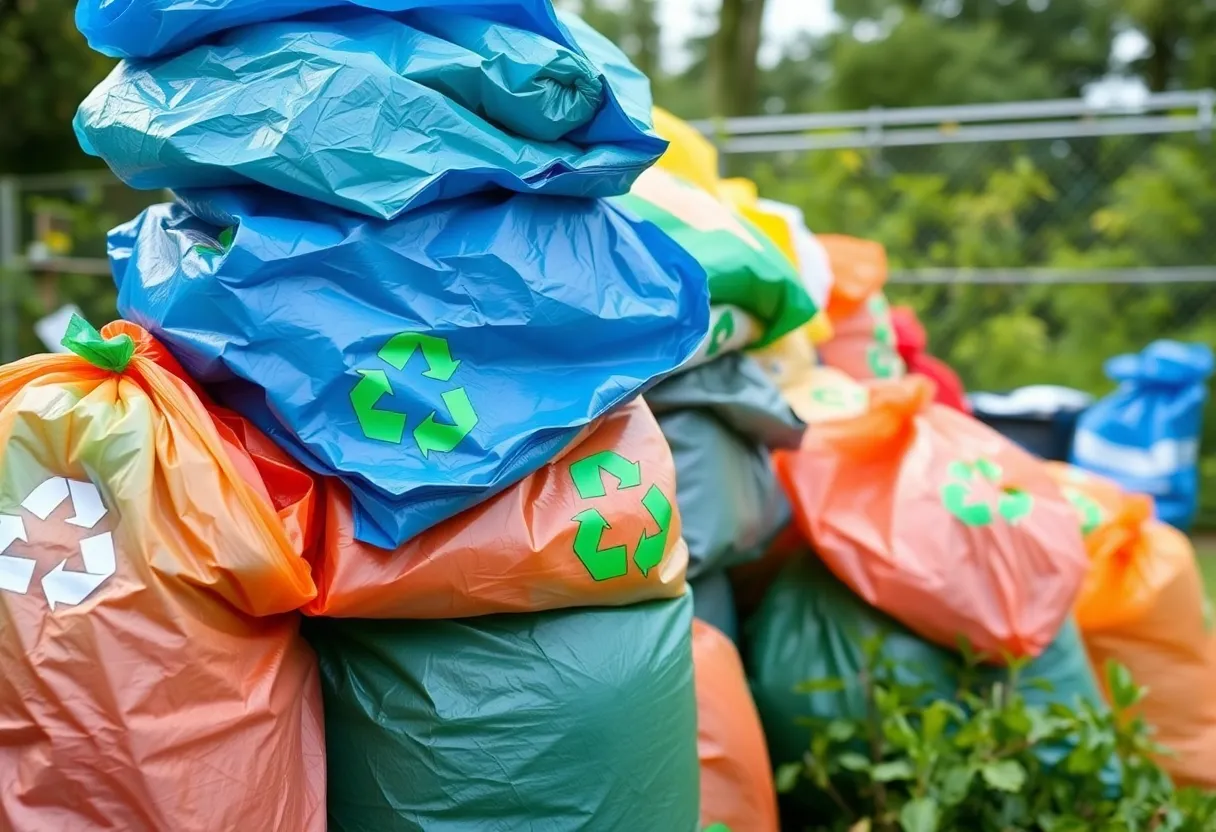News Summary
Arizona Attorney General Kris Mayes has filed a lawsuit against Reynolds Consumer Products, alleging that the company misled consumers about the recyclability of its Hefty trash bags. The lawsuit claims that the bags marketed as recyclable are actually non-recyclable in municipal facilities, which could hamper recycling efforts. The complaint seeks to prevent further deceptive practices and requests restitution for affected consumers. This move highlights the need for transparency in marketing claims and accountability for environmental messaging in the consumer goods sector.
Arizona Attorney General Files Lawsuit Against Reynolds Consumer Products
Arizona Attorney General Kris Mayes has initiated legal action against Reynolds Consumer Products, the parent company of the Hefty brand, for allegedly making misleading claims about the recyclability of its “Clear” and “Blue” trash bags. The lawsuit was filed in Arizona Superior Court last week, revealing concerns that the bags marketed as recyclable are, in fact, non-recyclable in municipal recycling facilities.
The lawsuit asserts that the deceptive marketing of these Hefty trash bags could hinder recycling efforts, leading to recyclable materials being incorrectly sent to landfills. The complaint seeks a permanent injunction to prevent Reynolds from engaging in further deceptive practices and requests financial restitution for consumers who may have been misled, along with civil penalties aimed at the company.
Misleading Marketing Claims
According to Attorney General Mayes, the Hefty brand has misrepresented the recyclable nature of its trash bags. These bags prominently feature a green label declaring “Recycling” and have been marketed as suitable for recycling since their introduction in 2019. However, the lawsuit argues these bags fundamentally cannot be recycled, thereby leading consumers to believe that using them would not negatively impact their recycling efforts.
As part of marketing strategies, the trash bags were packaged in boxes that depicted the bags filled with recyclables, further encouraging customers to consider the products as environmentally friendly. In 2022, the packaging underwent revisions that removed explicit references to the term “recycling” but still employed visuals associated with recycling, potentially misleading consumers. By 2024, a new redesign eliminated the term “recycling” completely but retained imagery that could imply recyclability.
Legality and Industry Impact
The lawsuit claims all versions of the packaging issued by Reynolds violate the Arizona Consumer Fraud Act. This legal action highlights the challenges consumers face in navigating the complexities of recycling, especially when companies do not provide complete and accurate information. The complaint underscores that soft plastic bags, including those sold by Hefty, can obstruct the recycling process by causing clogs in the sorting machinery used at recycling facilities.
Attorney General Mayes criticized Reynolds for prioritizing profits over consumer honesty, alleging that the company has taken advantage of consumers’ sincere intentions to recycle. Hefty trash bags were marketed specifically for recycling needs, creating a false sense of security among consumers regarding disposal methods.
Consumer Actions
Consumers who suspect they have been misled by Reynolds Consumer Products regarding the recyclability of Hefty trash bags are encouraged to reach out to the Arizona Attorney General’s Office for support. The Attorney General’s Office is prepared to assist individuals who feel they have been affected by these deceptive marketing practices.
This lawsuit marks a significant moment in holding companies accountable for their environmental claims, emphasizing the importance of honesty in product marketing. With increased scrutiny on packaging and recycling claims, the outcome of this case may influence future practices within the consumer goods industry.
Conclusion
As this legal battle unfolds, the focus will remain on the transparency of marketing claims and the impact such claims have on consumer behavior and recycling efforts across Arizona. The state Attorney General’s actions reflect a broader movement toward protecting consumers against misleading practices and safeguarding the integrity of recycling programs.
Deeper Dive: News & Info About This Topic
- Recycling Today
- KTAR News
- Courthouse News
- Consumer Affairs
- Arizona Capitol Times
- Wikipedia: Recycling
- Google Search: Recycling Laws
- Google Scholar: Recycling Consumer Rights
- Encyclopedia Britannica: Recycling
- Google News: Arizona Recycling Lawsuit

Author: STAFF HERE PHOENIX WRITER
The PHOENIX STAFF WRITER represents the experienced team at HEREPhoenix.com, your go-to source for actionable local news and information in Phoenix, Maricopa County, and beyond. Specializing in "news you can use," we cover essential topics like product reviews for personal and business needs, local business directories, politics, real estate trends, neighborhood insights, and state news affecting the area—with deep expertise drawn from years of dedicated reporting and strong community input, including local press releases and business updates. We deliver top reporting on high-value events such as the Waste Management Phoenix Open, Cactus League Spring Training, and Arizona State Fair. Our coverage extends to key organizations like the Greater Phoenix Chamber of Commerce and Visit Phoenix, plus leading businesses in technology and healthcare that power the local economy such as Intel and Banner Health. As part of the broader HERE network, including HERETucson.com, we provide comprehensive, credible insights into Arizona's dynamic landscape.





